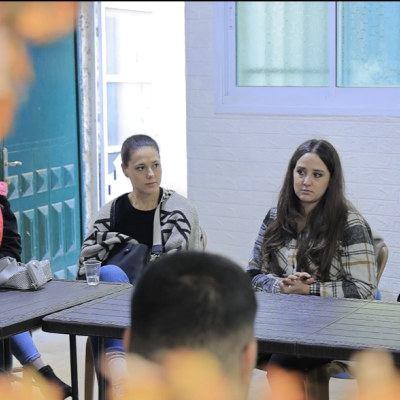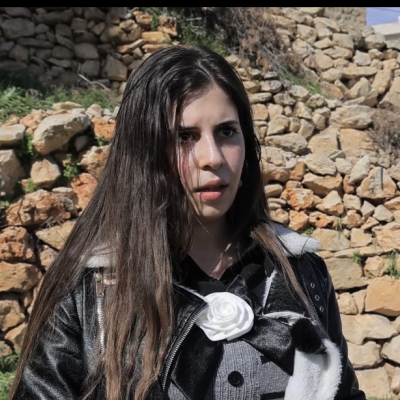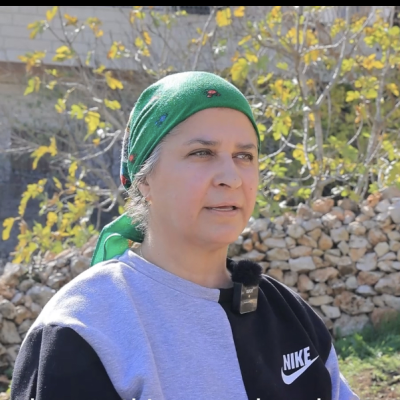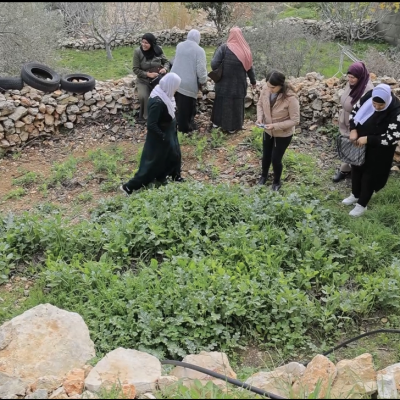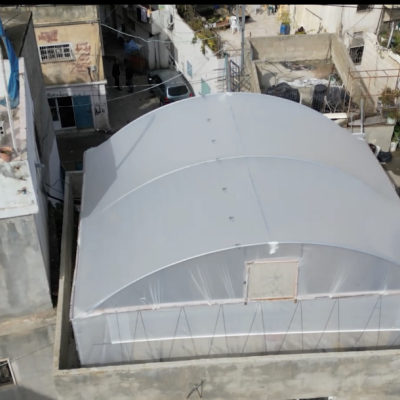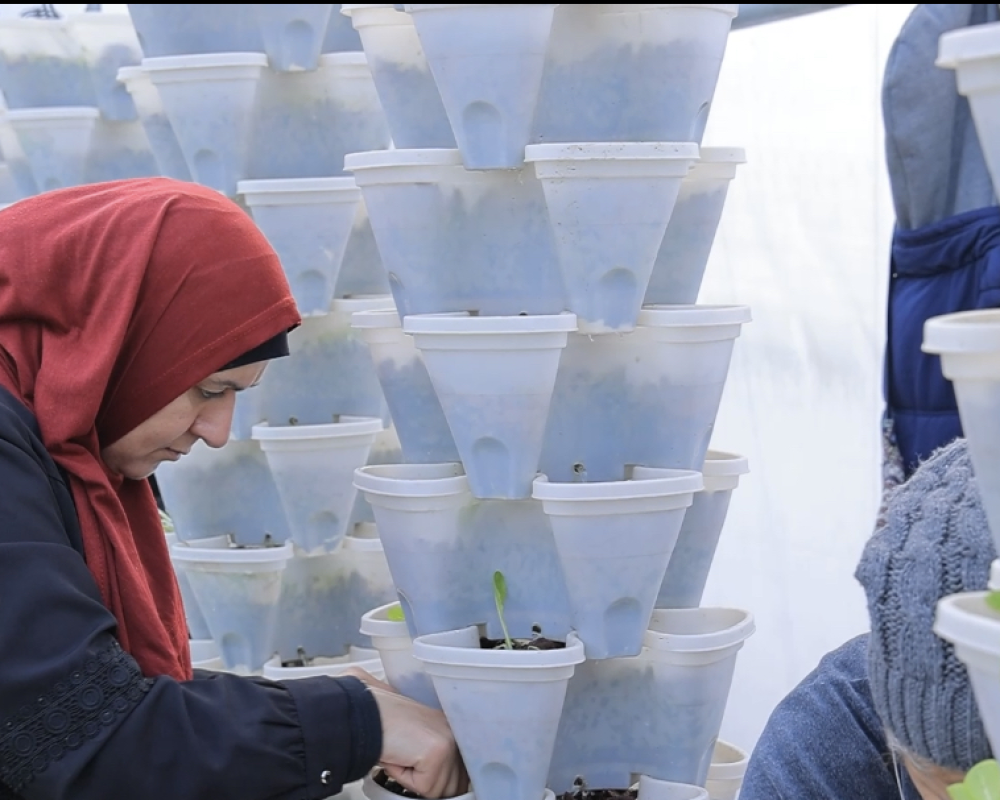
Bethlehem/PNN/
The Rahana Association in the Beit Jibrin "Al-Azza" refugee camp is working to empower women by strengthening their household economy through environmental and water agriculture programs. This is achieved by constructing plastic greenhouses on the roofs of homes in the camp on one hand and seeking to rent agricultural lands in the Bethlehem area on the other.
Shatha Al-Azza, the founder of the Rahana Association and its executive director, says that the crops they cultivate are promoted and attempted to be sold to support Palestinian products. This also involves boycotting agricultural products of the Israeli occupation as part of Rahana's objectives.
Al-Azza points out that the Rahana Association is a non-profit organization founded in August 2023. The association's philosophy is based on the development of human resources to achieve sustainable environmental development and self-sufficiency, especially in the Palestinian context and refugee camps.
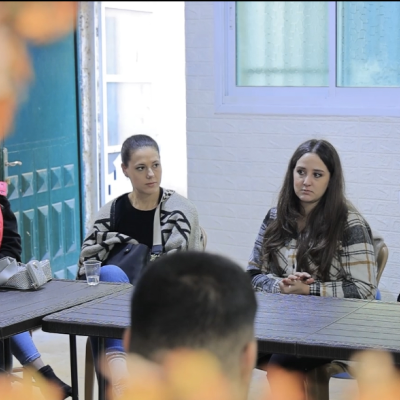
She added in her interview with PNN that the association's fundamental goals are to form an effective institutional center, especially in the social and environmental fields, that enhances the presence of youth through community participation, especially in the current economic downturn experienced by our Palestinian society.
Al-Azza continued that the crops planted and sold in the winter season are mainly leafy greens, including lettuce, which is available in the market. Consequently, today we planted more lettuce to be sold in the Palestinian markets.
Shatha Al-Azza emphasizes that the presence of the association inside the camp represents a qualitative leap for the camp, as it has been absent for 16 years. The association will strive to activate both youth and women in the camp.
The head of the Rahana Association clarified that the association relies on four main axes: the environmental axis, the social and cultural axis, and the local economic axis. Through the environmental axis, the association promotes the entrepreneurial idea based on hydroponic agriculture, aquaponics, and organic farming on the rooftops of homes that lack agricultural space within the camps. This method is used to produce organic crops, benefiting the community.
The association also focuses on environmental farming outside the camp, especially since there are no green spaces within the camp. Through environmental farming, threatened agricultural lands, or those belonging to benefiting women within the association, are utilized. These women are seeking more education on the basics of environmental farming, in addition to producing agricultural crops according to their seasons.
Al-Azza emphasized that Rahana's activities focus on hydroponic farming. They transitioned from theoretical perspectives to practical application after providing a series of training sessions on hydroponic farming. The first practical application was carried out by the women within the association, involving hydroponic lettuce cultivation. Later on, they plan to promote it to the community and the local market within our Palestinian society.
Director of the Rahana Association, Shatha Al-Azza, concluded by confirming that the association will continue its agricultural activities, and the harvest will be picked in the coming months, followed by promotion.
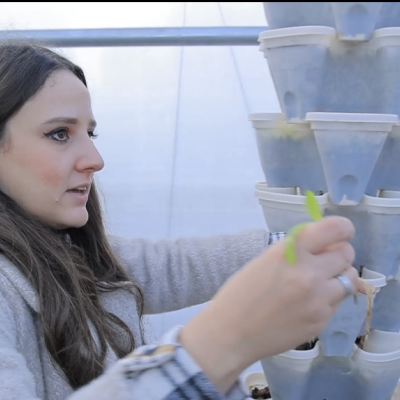
Young volunteers find an opportunity for self-development in Rahana.
Volunteers in the association, especially young people, aim to develop themselves through community work. In this context, Shaher Al-Qaisi, a volunteer in the Rahana Association, stated that his role in Rahana is the first time the camp has hosted an agricultural association. He expanded his efforts to gather young people to organize various events, assisting in the development of local agricultural products, and thereby contributing to creating income opportunities for them.
On the other hand, university student and Rahana beneficiary Banan Subhi mentioned that she joined a scholarship program for her university. It involved an educational course about green jobs through the Food and Agriculture Organization (FAO), which provided courses through online education. The course included the topic of environmental farming. She added that the condition for this course was affiliation with an environmental organization in Bethlehem to apply the material they studied in real life. Due to a shortage of environmental organizations in the city, she found the Rahana Association, joined them, and underwent training with them. She completed her training, which was paid.
Furthermore, she clarified that she planted the land of Umm Al-Tayyib, where she volunteers in the Rahana Association, noting that her volunteering and participation in the association increased her knowledge significantly. She emphasized that she benefited more during the practical application of what she had studied in real-life situations.
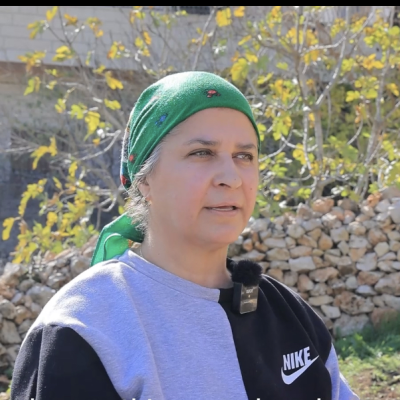
Women affirm that Rahana represents an opportunity for them.
Volunteer in the Rahana Association, Aida Shuka, stated that through this association, she learned a lot, including hydroponic and environmental farming. In a previous instance, she participated in planting paper crops, including Sansevieria, spinach, and broad beans.
Shuka emphasized that she and the participating women learned many things, most importantly how to make the soil fertile to produce good yields for their benefit.
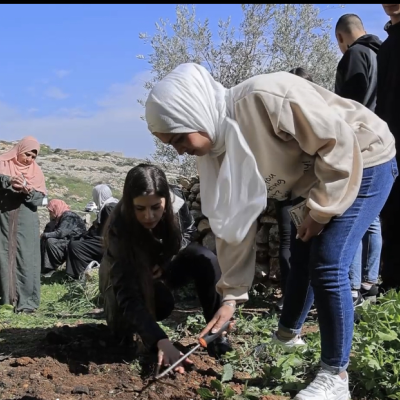
For her part, I'timad Shumruk, a participant in the Rahana Association, says that there are not enough spaces in the camp for farming, but hydroponic farming gives them the opportunity to plant in small spaces on the rooftops of homes.
Shumruk pointed out the advantages of hydroponic farming, such as utilizing small spaces for large quantities. She mentioned that this type of farming can be applied multiple times, and she is attempting to grow a vertical garden on the wall of her house. She explained that she started with a small project that became challenging, emphasizing the need to be thorough, confident, and well-informed.
This story was produced as part of the Qareeb program, implemented by the French Media Development Agency (CFI) in partnership with the French Agency for International Cooperation (AFD).
